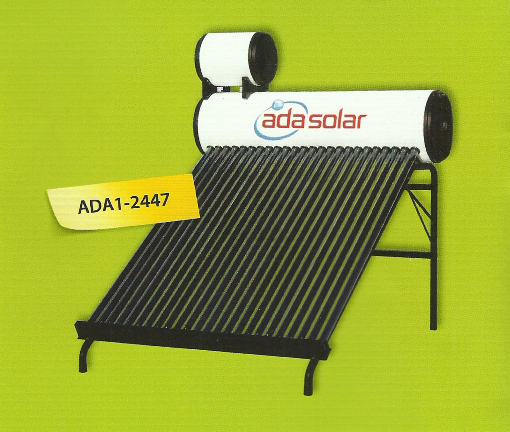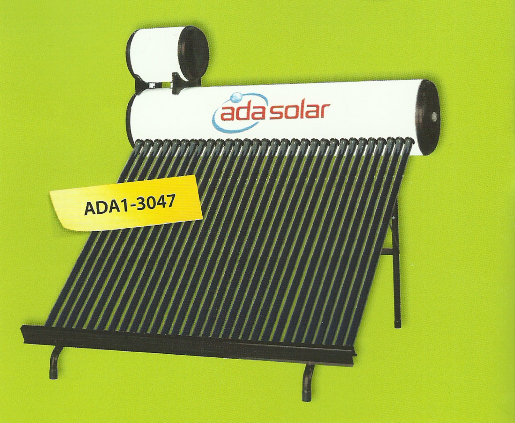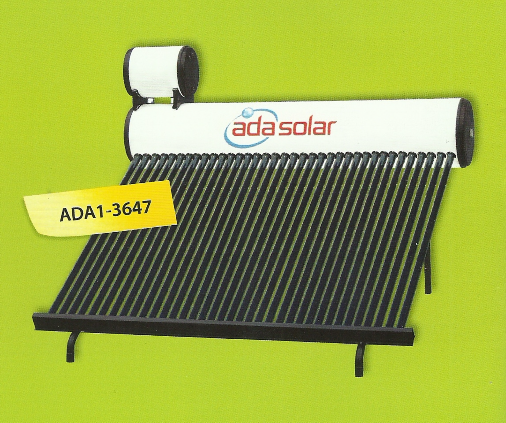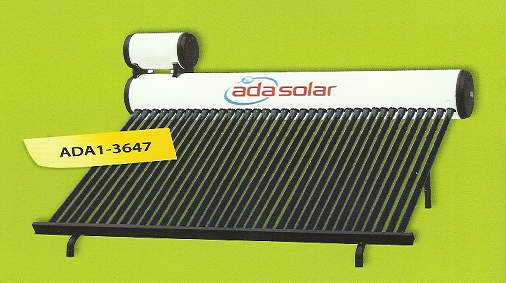LOW PRESSURE VACUUM SOLAR COLLECTORS
Vacuum tubular solar collectors convert solar energy into useful heat in a solar water heating system.
This energy can be used for: domestic heating, pool heating, space heating or even air conditioning.
The principle of operation of the solar vacuum collector is simple. The solar vacuum tube works similarly to a thermos coffee bottle. It consists of two layers of glass with a vacuum between the layers.
The heat absorbed (heat absorption 93%, and temperatures above 150 ° C) is transferred inside the water with minimal losses due to vacuum insulation between the pipes.
The pipe is resistant to corrosion and weather hail (hail) up to a size of 25 mm.
On the other hand, due to the distance between the pipes, the system does not allow snow to accumulate, and is resistant to snow speeds up to 100km / h.
There are basically two types of solar systems with vacuum tubes:
A) Low pressure solar vacuum collectors
Solar energy passes through glass tubes heating the water inside the tubes. Since there is a vacuum between the tubes, this vacuum becomes an almost perfect heat insulator, the heat from the inner glass tube cannot escape back into the atmosphere - even in cold conditions.
As the specific gravity of cold water is heavier than hot water, hot water in glass tubes begins to rise into the insulated water tank, causing the cold water from the insulated water tank to sink (descend) into the glass tubes. As the cycle repeats, the water in the solar water heater is heated. This process is known as thermosiphon.
Thermosiphon vacuum collectors-system consists of:
- Main tank
The main tank is without pressure and serves as a tank for water and circulation. The vacuum tubes of the solar collectors enter the tank near the bottom, at an angle, allowing water to enter the vacuum tubes and exit the tank. The main tank has the possibility of installing an electric heater in case it is necessary to quickly increase the water temperature.
- Auxiliary tank
It is installed on top of the main tank without pressure. Heated water has a lower density compared to colder water, that is, warmer water needs more storage space. Extra volume
required for hot water is provided with an auxiliary tank. This auxiliary tank controls the flow of water from the water supply network to the main tank.
- Frost protection
Solar vacuum collectors are a low-pressure frost-resistant system, when properly installed. Adequate thermal insulation materials must be used as a means of insulating pipes.
B) Solar direct pressure vacuum collectors
Advantages:
- high pressure solar collectors can accept the connection of the water supply network up to 6 Bar;
- wide area of application, households, apartments, hospitals, houses, hotels, etc .;
- contributes to savings of 45-60% from your electricity consumption;
- reliable and environmentally friendly; - lifespan up to 20 years.
LOW PRESSURE SOLAR VACUUM COLLECTORS
ADA1 - 2447

|
Number of pipes |
24 |
|
Pipe dimensions |
47*1800 |
|
Hot water capacity |
160 L |
|
Cold water capacity |
40 L |
|
Cold water supply |
1/2 |
|
Hot water drain |
3/4 |
|
Internal storage material |
304 chrome-nickel |
|
Exterior material |
Statically painted galvanized iron |
|
Insulation material |
Polyurethane |
ADA1 - 3047

|
Number of pipes |
30 |
|
Pipe dimensions |
47*1800 |
|
Hot water capacity |
190 L |
|
Cold water capacity |
40 L |
|
Cold water supply |
1/2 |
|
Hot water drain |
3/4 |
|
Internal storage material |
304 chrome-nickel |
|
Exterior material |
Statically painted galvanized iron |
|
Insulation material |
Polyurethane |
ADA1 - 3647

|
Number of pipes |
36 |
|
Pipe dimensions |
47*1800 |
|
Hot water capacity |
230 L |
|
Cold water capacity |
40 L |
|
Cold water supply |
1/2 |
|
Hot water drain |
3/4 |
|
Internal storage material |
304 chrome-nickel |
|
External matter |
Statically painted galvanized iron |
|
Insulation material |
Polyurethane |

